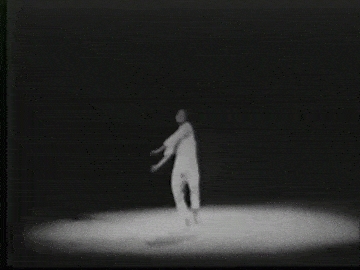"Be kind, we need to remove the ax": I work as a criminalist
About the work of a forensic expert usually know little: they are either confused with forensic scientists, or romanticized thanks to the cinema. We talked to criminalist Ekaterina Romanova about how things really are, about the stereotypes of the traditionally “male” profession and about what the authors of films about the police are wrong about.

About form and dream
I was not going to be a forensic expert and I did not play to the police as a child. At about ten years old, she found a book by Alexandra Marinina, she began to read. How impressed I was Kamenskaya! Maybe everything from there. Since then, I became interested in the police - I really liked the form. In the tenth grade of the school, we had one school day allocated for practice. It was possible to choose from several areas: economic, legal, engineering. I chose a law: I went to the proposed office a couple of times, and then I asked the police and agreed with the class teacher to count it as a legal practice.
So I began to go to the district police station, to the investigation department - and not once a week, but every day. At first it seemed that there was nothing more interesting, but as I delved into the profession of an investigator, it became boring - too many papers. Once I was taken to leave to inspect the scene of the incident - it seems that it was a burglary. There he was - an expert! He had a suitcase in which there was nothing: brushes, powders, fingerprint films, gypsum, camera "Zenith". I was impressed. And from that moment, I decided that I want to be an expert, but not an investigator.
For example, there was a murder. The forensic medic is called to the place, he inspects the body, looking for signs of violent death on it. I, as a forensic expert, fix the position of the body, the damage on it and on the clothes
I grew up and studied in the Leningrad region. When there was a question about entering a university, it turned out that a forensic expert diploma can only be obtained in Moscow, Volgograd or Saratov. The admission system is tricky: the university cannot take students only from their hometown, so they send requests to the regions. I came from the direction of Volgograd. Mom saw valerian, dad pounded his fingers on the table, I begged to let me go and promised to behave. After much deliberation, it was decided that I was going. I passed a medical examination and psychological tests in St. Petersburg, and a couple of months before the start of the school year I received a request from Moscow for one student. Since my regional city is small and the police station is also small, at that time I was not aware of just the lazy one — they received a call from the personnel department of the police and quickly helped to transfer the papers. So I ended up in Moscow and entered the Moscow Academy of the Ministry of Internal Affairs of the Russian Federation at a faculty that prepares forensic experts. She graduated in 2006 and returned to serve in St. Petersburg.
When I went to work at the police, I felt nothing but pride. What is the negative opinion of people? Yes, I did not care! I was following a dream, my parents and friends supported me.

About the movie and the traces of crime
We are often confused with doctors. For some reason, the majority of people associate the profession of forensic expert with only corpses, many believe that it is we who do the autopsy and write a conclusion about the causes of death. This is not true. I will explain the difference. For example, there was a murder. The forensic medic is called to the place, he inspects the body, looking for signs of violent death on it. I, as a forensic expert, fix the position of the body, the damage on it and on the clothes. And, of course, I continue to look for traces of a criminal. If the suspect has already been detained, I take additional measures: I take away particles of gunpowder, blood or other biological traces from the hands of the alleged killer.
There are seven traditional types of forensic research: fingerprinting(identification of a person by fingerprints. - Approx. Ed.), trasology(the study of traces and how they arose. - Approx. Ed.) handwriting(studying the handwriting and writing skills of people. - Ed.), ballistics(the study of firearms, ammunition and traces of their actions. - Approx. Ed.), examination of cold and throwing weapons, technical and forensic examination of documents, portrait examination(identification of a person by photo and video materials. - Approx. Ed.). This is only basic research, and everyone needs their own knowledge and skills. I have the right to conduct all of the above types of research, but now I practically do not do this. Such studies are carried out in the offices (they may need a microscope or an ultraviolet lamp), and I work as part of the investigative team, that is, I leave for calls.
Not all hands can be removed from all surfaces. Many people are mistaken in thinking that they can be removed from clothes or from a rough leather bag. To detect a trace in such cases can sometimes be removed on film - not always
When I first came to work at the police, I conducted mostly handwriting, dactyloscopic, portrait examinations. Handwriting explores handwriting and signatures. For example, they brought a gift to the apartment, and the hostess said that she did not give it. Then an examination is appointed to determine whether its signature is in the document or has been forged. Most of all I did dactyloscopic examinations. This is a study of fingerprints and palms removed from the scene. First you need to collect traces using adhesive tape, then using a magnifying glass and a "needle" (the tool looks like an awl with a thin needle) correctly calculate the lines of the pattern and compare them with the pattern on the hands of the alleged perpetrator or victim. This is necessary to eliminate unnecessary traces. All this is done manually, not using a computer.
Now I leave for calls and inspect the scene. The police team travels to all incidents - from car thefts to murder. Supervises the inspection, as a rule, the investigator. My job is to look for and fix the traces of a crime. I take a picture of the crime scene, treat the surface with a special magnetic powder (it is needed to detect handprints on the surface of objects. True, it only works on smooth, non-magnetic surfaces - for magnetic surfaces we use soot and squirrel). I identify and collect traces of the alleged offender, packing everything in order to preserve objects.
Not all hands can be removed from all surfaces. Many people are mistaken in thinking that they can be removed from clothes or from a rough leather bag. To detect the trace in such cases can sometimes be removed on film - not always. If it does not work out, we photograph a trace with a scale bar in macro mode. It also happens that the victims indicate that, for example, the money was in a paper envelope. Then we send the envelope to the laboratory - it is processed there with a special compound, after which hand prints can appear.
In the movie, traces are removed from ballpoint pens and toothpicks - this is nonsense. As well as the fact that the evidence is folded in plastic bags. In no case can this be done, polyethylene "kills" traces
We use different tools. So, traces of shoes, microparticles, paint and varnish coatings (for example, if the car was scratched) are removed on fingerprint films, and handprints - on adhesive tape. Gypsum is used to remove bulk traces of the soles of shoes or tire tread. The offender came shoe in the mud, it left a trace - it is filled with plaster.
In the movie, traces are removed from ballpoint pens and toothpicks - this is nonsense. As well as the fact that the evidence is folded in plastic bags. In no case can this be done, polyethylene "kills" traces: fingerprints are erased, and traces of blood and other biological materials simply go out and cannot provide the information we need. We use cardboard boxes. We send them to the precinct or we take from the victims: "Be kind, a couple of boxes of shoes. We need to remove the ax with blood marks."
I can also help the investigator with recommendations. Let's say, advise further inspect the wet car: if it was raining outside, you first need to wait until it dries, and only then process it with powder to remove traces. Or advise make identikit of the offender. The investigator gives the direction, the victim comes to the department, and there the expert makes a photofit.

About women in the police
My work schedule is three days a day. When there are no calls, there is enough work in the department. We are entering into the general base of the city the dactycards with the handprints of all who are brought to the police department. In the other database we record their photos. But all this works again, not like in the movies - vzhuh, and in a second I found the villain in the police base, as in Google. Even when we need to find information urgently, we first write a request. In the movie in general, everything is nonsense. My friend is a doctor. She criticizes all medical films, and I - the police. So have fun.
The dress code of a police officer primarily involves uniforms and related rules. Tights should be flesh-colored, long hair should be tied up. Shoes - black authorized. As for the manicure and the length of the nails, there is no order, but it is just inconvenient for me to work with long nails - they interfere. However, like make-up: when you work a day, painted eyelashes become a disadvantage rather than an advantage.
Forensic expert men are more than enough. Ballistic examination, trasological (as far as automotive equipment), cold weapons, substances, materials and products from them (in other words, chemical research) are usually carried out by men. Female experts are conducting more rigorous research, more monotonous, requiring perseverance.
Men sometimes ask if I wear a uniform, know how to shoot and what I do in the police. In general, they react roughly the same way as men, as women: everyone is interested, did I see corpses
If we talk about trips for inspections, of course, women are not always comfortable. It happens, it is necessary to do "drunk" damage - for example, when a house was broken into by a criminal, the criminal squeezed the door with scrap, and there were traces of it on the door or on the jamb. Then the criminologist cuts through this area with injuries. If they find such a scrap or detain a suspect with a crowbar, it will be possible to compare this item with a pressed door or another. Or, sometimes, you need to unscrew the lock, climb on the roof of the house or in the basement with rats. Or found the corpse of some "ugly." Or the stuff is very heavy. But, as a rule, there are always men around: operatives, local policemen.
My friends have long been accustomed to my profession, except that sometimes they ask me to tell some case. If the news became public and I went to the site, then they ask whether everything was really the way they are written in the media. But new acquaintances, when they find out what I do, ask the standard question: "Are you dead, are you opening it?" Men sometimes ask if I wear a uniform, know how to shoot and what I do in the police. In general, they react roughly the same way as men and women: everyone is interested in whether I have seen corpses. My children are not so deeply immersed in the specifics of work. They know that my mother works in the police, they see me in uniform. The younger son every time after my shift asks if I caught the criminal.
I had no romantic ideas about the profession, because I started to understand the specifics of the work early, even before I got a job. I like to see the result of my work. When I realize that thanks to my knowledge, skills, experience, a crime has been revealed. That, thanks to the tracks that I seized, they calculated the criminal. It is very motivating.
I myself do not put the bag in the car on the passenger seat, do not leave the key in the ignition when I clean the car from the snow, do not respond to SMS messages "from the bank" and a lot of different "not"
Stress, of course, is there, but no more than that of the same accountant during the reporting period. Just over time, you become a cynic, the reaction is dulled, the body itself puts on protection from stress. But not always. I still remember one of the first trips. The woman gave birth to a baby at home, wrapped it in a towel, put it in a bag and put it on the balcony. The baby lay there for three days. It was twelve years ago, and I still remember everything to the smallest detail, even the situation in the apartment. But such incidents, fortunately, are few. In principle, only children strongly cling to the soul, it is really stressful for me. Sometimes even dreamed of.
Family helps to relieve stress. I have two children, I come home, and I always have something to do. I also have a lot of hobbies. I love to sew, draw. I love cars, I enjoy spending my free time studying new models, motors, electronics. I can change the oil, add brake fluid, check the pads, replace the wheel.
Work in the police definitely changed my attitude to life. At home, we do not open the windows wide-open and do not install mosquito nets, so that children do not fall out, leaning on them. My children from the age of three know traffic rules and cross the road to the green light of a traffic light at a crosswalk. Under no circumstances will they approach strangers and even “theirs” if we have not agreed on this in advance. I myself do not put the bag in the car on the passenger seat, do not leave the key in the ignition when I clean the car from the snow, do not respond to SMS messages "from the bank" and a lot of different "not." Such professional fears.
Photo: Andrey Kuzmin - stock.adobe.com, shotsstudio - stock.adobe.com (1, 2)





